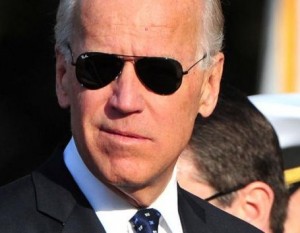by | ARTICLES, CONSTITUTION, ELECTIONS, FREEDOM, GOVERNMENT, OBAMA, POLITICS
Last week on October 7, it was reported that Liberia’s President, Ellen Johnson Sirleaf, asked for more emergency powers to help contain and prevent the current Ebola crisis. Liberia is already under a state of emergency and curfew, which began in August. But according to VOA News:
“In a letter to the Plenary of the House of Representatives and the Senate, Sirleaf asked for powers to amend seven different articles under the constitution, including freedom of movement, speech, religion, confiscation of private property, and elections.”
Besides asking for extra powers, and citing the current “state of emergency”, President Sirleaf then proceeded on October 8th to suspend nationwide elections for Senate due to be held later this month. Yahoo News reported that,
“Almost three million voters had been due to take part in Senate polls on Tuesday but organisers said there was no way a “mass movement, deployment and gathering of people” could go ahead without endangering lives.”. A presidential proclamation claimed the state of emergency allowed her to “to suspend… any and all rights ordinarily exercised, enjoyed and guaranteed to citizens.”
You can read her power request letter here.
One chilling request is that “the president has asked for a temporary extension of the state of emergency removing a constitutional right to make public speeches which could “undermine” the response to the epidemic.”
Opposition to the election suspension was swift. Tokpa Mulbah, a member of the House of Representatives from the People Unification Party, stated that “The Chief Executive, Madam Sirleaf, does not have that constitutional authority to make such a pronouncement. So based on that, we will be drafting a resolution Thursday to be sent to the Liberian Senate for a vote and placed in front Madam Sirleaf to sign so that the Elections Commission can go ahead to conduct elections from now till December 30 so that come second Tuesday in January the new 15 senators will be able to take their seats.”
In fact, the House went on to vote to reject Sileaf’s request “for more powers to restrict freedom of Movements, speech, religion, assembly and of the press, as well as property rights, through a motion filed by Representative Brown. Both Houses, in a Joint Resolution passed on Friday, October 10, 2014, unanimously voted to overturn a President Sirleaf’s decision to indefinitely cancel the October 14 Mid Term Senatorial elections.”
Is is unclear if the Senate concurred with the House. According to AllAfrica, the Senate is torn and is still debating.
Freedom of the Press has also been under attack since the curfew. Apparently, “journalists were not included on a list of exempted professions able to move freely around the country at night. (They were added six days later.) In early October, citing privacy concerns, the government announced that reporters could be arrested for speaking with Ebola patients or photographing treatment centers without written permission from the health ministry.” Further information regarding the freedom of the press during the Ebola crisis can be found here.
Liberia spent two decades of civil war, and the election of President Sirleaf was seen as a more stable, constitutional rule. Liberians should reject this attempted power grab, even in the midst of such a tragic time in their country, in order to safeguard their liberties for the long-haul.
by | ARTICLES, ECONOMY, FREEDOM, GOVERNMENT, OBAMA, OBAMACARE, POLITICS, TAX TIPS

This Washington Times piece did a nice overview of FY2014:
The Treasury Department unveiled its Fiscal Year 2014 numbers, which showed that the government’s revenue, for the first time ever, hit the $3 trillion mark. However, the government still overspent its revenues, leaving a $483 billion deficit.
Supporters of President Obama are touting the “success” of a $483 billion deficit by pointing out its the lowest deficit since 2008. A “mere” $483 billion deficit is not something to be celebrated. It means that, despite record revenues, the government still engages in out-of-control spending.
By comparison:
“The government first hit the $1 trillion revenue mark in 1990, then hit the $2 trillion mark in 2000. But President George W. Bush’s tax cuts and the bursting of the 1990s Internet bubble cut into revenue, dropping it to $1.8 trillion in 2003, before it began the shaky climb to $3 trillion.
Just five years ago, in 2009, the trough of the recession, revenue was only $2.1 trillion. That means it’s leapt $900 billion in just five years.”
And here’s where the dichotomy lies. The Left sees high government revenue as something to be celebrated, while the Right understands that high government revenue means less money for the private sector. “Every one of those $3 trillion is sucked out of the private-sector economy and makes the private sector smaller,” said Chris Edwards, director of tax-policy studies at the Cato Institute. “The $3 trillion isn’t free. It comes out of our pockets and from the private economy.”
Contrast his analysis with Jack Lew’s, Treasury Secretary. “The president’s policies and a strengthening U.S. economy have resulted in a reduction of the U.S. budget deficit of approximately two-thirds — the fastest sustained deficit reduction since World War II,” Mr. Lew said.
What are those “president’s policies”? Successful tax hikes. The highest 2% earners saw their tax margins increase; all earners saw their payroll taxes go up. And don’t forget the Obamacare taxes. The full list of all of Obama’s tax increases can be found here.
Perhaps the most profound statement can be summed up here: “Spending, meanwhile, has remained relatively flat at about $3.5 trillion.”
When spending is “flat” at $3.5 trillion, we definitely have a problem. Each year since 2009, the Obama Administration has spent over $3 trillion, the only president to ever do so: From 2009 – 2013 respectively, here are the numbers of spending in per year: 2009: $3,517,677; 2010: 3,457,079; 2011: $3,603,059; 2012: $3,537,127; 2013: $3,454,605. For a full chart of historical federal spending per year, go here. Federal spending has remained consistent at around $3.5 trillion/year — consistently high. Over-budget. And adding deeply to the deficit each year.
It will be interesting to revisit this next year at the end of FY2015, when Obamacare, the crowning Obama policy achievement, really gets going. Remember how Obamacare was going to reduce deficits? About that. The Weekly Standard recently did a thorough analysis of Obamacare projections and found that:
“So, compared to the deficit surplus of $180 billion for 2015-24 that a straight extrapolation from the CBO’s 2012 scoring would yield, current projections now indicate that Obamacare’s decreased spending (in relation to prior expectations) will reduce deficits by another $83 billion (bringing the estimated surplus to $263 billion), but those projected surpluses will be more than offset by the projected $132 billion decrease in Medicare revenue and $262 billion decrease in tax revenue due to lower job growth.
In all, therefore, CBO projections indicate that Obamacare will increase deficit spending by $131 billion from 2015-24. That’s a $311 billion swing from the extrapolated 2012 numbers, a $240 billion swing from the actual 2012 numbers, and a $255 billion swing from what we were told when Obamacare was passed.
So, this fiscal year was more of the same. Government overspending, gleefully celebrated by record tax collections of your hard earned dollars. The rapacious government needs to be fed.
by | BUSINESS, ECONOMY, FREEDOM, GOVERNMENT, HYPOCRISY, TAXES

Last week, I wrote about the population shift from the northeastern states to other parts of the country due to the high taxation. It seems that the Yankees aren’t the only ones concerned enough with crushing taxes that they are willing to relocated — the French are too.
From the Independent:
“France’s unemployment rate is hovering around 10 per cent. As for high-earners, almost 600 people subject to a wealth tax on assets of more than €800,000 (£630,000) left France in 2012, 20 per cent more than the previous year. Manuel Valls, the Prime Minister, announced in London this week that the top income tax rate of 75 per cent would be abolished next January after a number of business tycoons and celebrities moved out.”
Hélène Charveriat, the delegate-general of the Union of French Citizens Abroad, concurs. Charvariat noted that the “young people feel stuck, and they want interesting jobs. Businessmen say the labour code is complex and they’re taxed even before they start working. Pensioners can also pay less tax abroad.”
Though the repeal of the 75% is a start, the loss of French citizens to other parts of the world is going to hamper economic recovery in France. I wrote about this probability in 2012 when Hollande first proposed his “rich tax” scheme. The Laffer Curve effect has been proven here in France as it did in England last year: namely, that increasing tax rates beyond a certain point will be counterproductive for raising further tax revenue.
As we can see, high taxes drives away citizens who wish not to hand over to the government the money they have saved and earned — just to see it misspent and frittered away.
by | ARTICLES, BLOG, BUSINESS, ECONOMY, GOVERNMENT, OBAMA, POLITICS, TAXES

While stumping for Democrat candidates in Oregon, the Vice President shared his thoughts on the current economy with voters. And he got it very wrong.
“Economic growth has replaced the income that was lost during the recession, but the gains went primarily to taxpayers on the top. I think we should make them start to pay their fair share. Take the burden off the middle class”
Economic growth has not happened. Since Obama began his presidency:
The national debt has skyrocketed from $10.6 trillion to $17.8 trillion
Homeownership has decreased from 67.5% to less than 65%
Labor participation has fallen from about 66% to 63%.
Food stamp use has increased from 32 million to 46 million participants
Lost income has not been replaced: Since Obama began his presidency:
Median incomes have decreased from about $54,000 to $51,500.
The number of Americans who consider themselves middle class has dropped nearly 20%
Gains did not primarily go to taxpayers on top:
“The top 20 percent of earners accounted for 51 percent of all income in 2013, unchanged from 2012 and up slightly from 49.4 percent in 1999″.
Of course, Biden used his (wrong) economic talking points to pull out the old class-warfare playbook and insist that the rich “pay their fair share”.
Finally, if Biden is concerned about taking the burden off the middle class, he needs to start with the government. As I said earlier this week, the middle class has been the most devastated by Obama’s policies. Job growth and small business sustainability have been decimated by government regulation, taxation, fines, and lawsuits meddling in normal business practices. The middle class can’t get good jobs anymore, businesses have failed, growth is tepid, and everyday Americans are rightfully discouraged.
by | ARTICLES, BUSINESS, ECONOMY, GOVERNMENT, OBAMA, POLITICS, TAXES

Suddenly, Obama is everywhere talking about economic policies again. He is the mastermind behind the growth in corporate profits. He is the reason for the current stock market highs. He has single-handedly reduced unemployment to its lowest rate since 2008. He is Obama!
And yet, the middle class is repeatedly telling Obama that they feel left behind.
Why such disparity? The Administration can try to attribute these recent “successes” to Obama, but it only shows that they have a laughable cluelessness about what is really happening as a result of his economic policies.
Major corporations are doing well because they have enough size and stability to weather the storm created by Obama’s terrible business policies. This has included minimizing employment and trying to be as lean and efficient as possible. Mom-and-pops, on the other hand, have not the luxury to be as resilient.
The stock market is high only because major corporations have continued to persevere by changing the way they do business. Because of the government policies — including over-regulation and excessive taxation — companies have been forced to operate on the skinny just to survive. By doing so, profits are able to be maintained and the stock market reactive to that.
As a result of efficiency, therefore, unemployment is at its lowest percentage because there are no jobs to be attained anymore and people are just simply leaving the workforce altogether. Obama refuses to acknowledge the fact that labor participation is at its lowest rate since 1962. That is the major contributing factor to his “low” unemployment number — not because of job creation as he claims. Americans have stopped looking for work.
Thus, the middle class has the correct assessment because they have been the most devastated by Obama’s policies. Job growth and small business sustainability have been decimated by government regulation, taxation, fines, and lawsuits meddling in normal business practices. The middle class can’t get good jobs anymore, businesses have failed, growth is tepid, and everyday Americans are rightfully discouraged.
Related: “AP’s ‘Fact Check’ of Obama’s ‘Stronger Economy’ Claims Limited to ‘A Few’ Items: Two”
Lou Dobbs Refutes Obama’s Claim that the Economy Has Improved by Every Economic Measure
Are You Better Off Today? Here are the True Facts & Figures From the Obama Economy
by | ARTICLES, ECONOMY, FREEDOM, GOVERNMENT, NEW YORK, OBAMA, POLITICS, TAXES

I have written on this subject before, and now the effects of high taxes and population migration are playing out in a substantial, political way: the decline of about 40% of Congressional seats in the northeast.
According to the Census Bureau, high taxpayers are moving south. It notes that in the 11 states that comprise the Northeast, population grew at a rate of only 15% over the thirty year span from 1983-2013, while the rest of the nation grew at roughly 41%. The key factor is high taxes. The result is a loss of Congressional seats there.
The American Legislative Exchange Council recently did a comprehensive study on House representation in 1950 from Maine to Pennsylvania, and compared it to current House seats. In 1950, there were 141 House members, but today there are only 85. Remember House seats are based on population — so this change is a 40% loss of power.
Need a dramatic comparison? Texas and California combined together now have more House seats than the Northeast conglomerate. For an area that used to be a political powerhouse, it is becoming increasingly marginalized due to excessive taxes and the ensuing population shift.
In 2011, Reuters had a lengthy article detailing how northern residents were fleeing massive state and local tax hikes. I wrote about the impact of high taxes on New York population loss here in 2012. And the NYTimes reported in December 2013 that Florida was soon to pass New York in population.
High taxes are a major factor in this population and political change, and it will be interesting to watch in the next few election cycles. As the report notes above, “This result is one of the most dramatic demographic shifts in American history. This migration is shifting the power center of America right before our very eyes. The movement isn’t random or even about weather or resources. Economic freedom is the magnet and states ignore this force at their own peril.”
by | ARTICLES, BUSINESS, ECONOMY, FREEDOM, GOVERNMENT, OBAMA, POLITICS, TAXES

Discussion began heating up again about the “internet tax” last week when lawmakers pushed back the moratorium on Internet access taxes — set to expire on Nov. 1 — until mid-December during the lame-duck session. In the meantime, let’s call it out for what it really is: a revenue grabber masquerading as “fairness”.
Last year the Senate passed the online sales tax bill, formally known as the “Marketplace Fairness Act”. There is nothing fair about this act. It is a back-door way for states to add additional levies on their citizens under the guise of leveling the playing field . From an accountant’s perspective, here’s how:
Most proponents of the bill suggest that there is somehow a dearth of tax revenue from which states are suffering terribly. This sentiment was echoed at the time in the pages of the WSJ by Arthur Laffer. He wrote that “the exemption of Internet and out-of-state retailers from collecting state sales taxes reduced state revenues by $23.3 billion in 2012 alone, according to an estimate by the National Conference of State Legislatures. The absence of these revenues has not served to put a lid on state-government spending. Instead, it has led to higher marginal rates in the 43 states that levy income taxes”.
But this is simply and patently untrue. State legislatures have always set their tax rates with the full understanding that they would not actually collect that supposed $23.3 billion of internet “slippage”. It’s not like there is a line item in state budgets that lists “uncollected online tax” or “tax cheats” with a number attached. Sales tax is one of many levies whose revenues positively fund government spending. This online tax, if passed by the House next and signed into law, will just be yet another tax (and therefore revenue) for the coffers. Higher marginal rates exists because state-government spending levels are higher, not because of some “absence of tax” nonsense that forces states to raise rates.
In our states’ budgets, current taxes rates (income + sales, if applicable) are set at levels appropriate to cover the calculations of state spending. 49 out of 50 states require a balanced budget. These states are fully aware that taxes are “avoided” (internet and out-of-state) and therefore don’t even count them in their budget calculations. So there is no concrete “absence of revenue”. Instead, by passing this new internet tax, you are merely giving the states a free reign to add a tax without taking the political heat for it, under the guise of “fairness”.
Looked at it another way, it is unconscionable for Congress to pass this legislation without requiring that states lower their marginal rates so that the new tax makes everything revenue neutral. Higher marginal rates as they are already burden taxpayers. This internet tax doesn’t fix anything — because there is nothing in their budgets to be “fixed”. True tax reform (a true “fix”) always means broadening the base and thereby reducing the overall burden of taxes. Instead of that, what we have with this bill is a revenue grab.
Another fallacy for supporters is that including the internet tax in transactions is simply a matter of adding a quick, little tax line where there was none before. But it is highly irrational for legislators to believe that compliance with multiple tax jurisdictions for vendors will be an easy and unburdensome process. The recordkeeping will be excruciating.
This tax nightmare is similar to the 1099 fiasco originally included in Obamacare a couple of years ago, which expanded the reporting requirements to include all payments from businesses aggregating $600 or more in a calendar year to a single payee. Because of the insurmountable amount of reporting and paperwork that would have been associated with it, that provision was highly protested and swiftly and subsequently repealed.
The effect of distressing our businesses to comply with this online tax collection will be a drag on the economy. Can you imagine vendors needing to figure such things as whether marshmallows are a taxable food/candy in some jurisdictions while it might be a non-taxable food in others? To think that software can seamlessly make this distinction is ludicrous, especially software run by the government. When has the government ever actually streamlined anything? And implementing such a convoluted tax while businesses are already having to deal with sorting out the egregious complexities of Obamacare compliance will certainly hurt businesses even more.
Internet tax collection for 9,600 local tax jurisdictions or even just 50 states is too much. If such a tax is to be passed, it should be either a tax in which every state accepts one set of rules OR a tax payable to the state-of-sale only — which would ultimately be better for tax competition overall.
The economy is suffering enough. Adding yet another tax for citizens, which also requires burdensome compliance for businesses, is not the way to do it.
Laffer was correct regarding taxes when he observed that “the principle of levying the lowest possible tax rate on the broadest possible tax base is the way to improve the incentives to work, save and produce which are necessary to reinvigorate the American economy and cope with the nation’s fiscal problems”. But the “internet tax” doesn’t do that. In its current form, it is just another revenue stream for our bloated, overspending government.
This is no “Marketplace Fairness Act”. It is an atrocity.
by | ARTICLES, BLOG, GOVERNMENT, HYPOCRISY, OBAMA, POLITICS

Whatever shred of actual relevancy Chuck Todd hoped to achieve as the new moderator of “Meet the Press” just collapsed during his MSNBC interview regarding the resignation of Attorney General Eric Holder. Chuck Todd eulogizes Eric Holder as “a non-political person”:
“He did a lot of the tough stuff that you would say, ‘Hey, the attorney general has to do tough stuff, this is not a forgiving job, you have to do tough stuff. But, what’s interesting about him, he is a very non-political person. And I think people used to mistakenly think that this guy was this long-time political operative who happened to be an attorney general. That’s not him at all.”
Thankfully, the folks over at NRO reminded us all that Eric Holder himself prefers to be considered a partisan hack. “In an August interview with the Hill, Holder revealed he was proud to be labeled an activist attorney general, adding that those who say the DOJ has an ‘activist civil-rights division and this is an activist attorney general — I’d say I agree with you 1000 percent and [I am] proud of it’.”
Eric Holder is the man who has completely destroyed the Office of the Attorney General. As for others Attorney Generals before him, even though they were hired by a particular President, they still put the country first. Attorney Generals have to contend with many different issues and cases, and they are expected to generally pick the most egregious ones to go after. With Holder, on the other hand, instead of picking out the most egregious, he purposefully picked out the most politically motivated ones to make hay with. Holder proudly relishes in his partisanship, yet Chuck Todd feels compelled to try to present this other Holder narrative instead — that Holder is “non-political”.
Amusingly, Chuck Todd’s asinine remarks drew swift ridicule online especially over on Twitter, where Twitchy quickly compiled a list of incredulous and snarky responses. As one person pointed out, “not even Eric Holder thinks this is true”.
The only logical conclusion is that Chuck Todd really is the hand-picked lapdog of the White House. Why else would he debut his tenure at “Meet the Press” by lobbing softball questions during an interview with President Obama? It is imperative to also pay attention to his other roles: besides being the moderator at Meet the Press, he simultaneously serves as the Political Director at NBC News; additionally, prior to becoming the moderator, Todd worked as the Chief White House correspondent. It appears Chuck Todd gleefully took a page takes his cues from Holder’s (non)partisan playbook strategy.
After three weeks at the helm, Chuck Todd’s rating have declined. According to Politico, “NBC’s “Meet the Press” finished in third place for the second consecutive week on Sunday, suggesting that the boon from Chuck Todd’s inaugural episode and exclusive interview with President Barack Obama was an aberration, rather than a harbinger.” What’s worse, if you compare it with the average number of viewers of “Meet the Press” during the 2013-2014 season, Chuck Todd’s ratings are below: “Meet the Press” in last year averaged 2.724M, whereas last week, “Meet the Press” had just 2.416M.
It will be fascinating to see how this farcical flap plays out with his viewership this week and beyond. For all the pundits who praised the choice of Chuck Todd for moderator and anointed savior of the floundering “Meet the Press”, no one can mistake his bias now. And thankfully, no one has to take him seriously anymore either.
by | ARTICLES, BUSINESS, ECONOMY, FREEDOM, GOVERNMENT, OBAMA, POLITICS, TAXES

The Department of the Treasury announced last night that it has implemented new rules aimed at making it more difficult for U.S. companies to move their headquarters abroad, which is known as an “inversion”. The rules take immediate effect.
Interestingly enough, when Obama began his crusade against inversions earlier this summer, Secretary of the Treasury Jack Lew was adamant enough that rules changes must originate in Congress, he wrote a letter to Congress and he penned an Op-Ed about it in for the Washington Post, both in July. From the Op-Ed:
I call on Congress to close this loophole and pass anti-inversion legislation as soon as possible. Our tax system should not reward U.S. companies for giving up their U.S. citizenship, and unless we tackle this problem, these transactions will continue. Closing the inversion loophole is no substitute for comprehensive business tax reform, but it is a necessary step down the path toward a fair and more efficient tax system, and a step that needs to be in a place for tax reform to work.
Now suddenly it seems Jack Lew has inverted own his position and announced new rules originating from the Treasury Department, not Congress — and did so as soon as Congress left town for a break. Obama referred to that loophole in his statement to the press:
“We’ve recently seen a few large corporations announce plans to exploit this loophole, undercutting businesses that act responsibly and leaving the middle class to pay the bill. I’m glad that Secretary Lew is exploring additional actions to help reverse this trend.”
Except there is no loophole. Business inversions are merely a movement from the U.S. to a foreign HQ. The reasons for doing so is not to avoid paying taxes as the Obama administration would have you believe. And there is no “lost tax bill” either that the middle class is “left to pay”. U.S. companies face a kind of double taxation — taxing both domestic and foreign earned corporate income — and we are the only major industrial nation to this to our businesses.
At a time when many industries are truly global, in the present environment U.S. companies are at a severe financial disadvantage compared to foreign companies. This foreign-earned income is what the United States government currently lays claim to — and is the only country in the world to do so. So under this tax law, U.S. companies therefore pay higher tax rates than other foreign companies do on the income they make in foreign countries, putting U.S. companies at a competitive disadvantage.
Jack Lew was right, in a tragic sense, when he stated that “this action will significantly diminish the ability of inverted companies to escape U.S. taxation”. That “U.S. taxation” from which some companies are trying to “escape” is that wretched double taxation on both its domestic and foreign earned income. All an inversion does is allow a U.S. company to change its HQ from the U.S. to a foreign country, for the sole purpose to have the ability to be on par with foreign companies and eliminate the severe tax disadvantage that the U.S. puts on its own businesses in a global setting. Enacting these rules will indeed “significantly diminish” some companies from inverting — and likely diminish their ability to stay competitive around the world in doing so.
Besides the double taxation rules, the United States has the highest corporate tax rate in the world at 35%. At a time when other countries have lowered their corporate tax rates, the U.S. has stayed stubbornly high, thereby earning them the 32 spot out of 34 countries in the new “International Tax Competitiveness Index”. This index measured two criteria, competitiveness and neutrality, by examining the extent to which a country’s tax system adheres to these two important principles of tax policy. Responding to that ranking, the Wall Street Journal wryly noted that if punitive legislation on inversions were to be enacted, ”the U.S. could fall to dead last on next year’s ranking. Now there’s a second-term legacy project for the President.” And now we have such measures suddenly implemented.
Sadly, the crusade against inversions is really less about money than it is about scoring rhetoric points by throwing around words like “loopholes” and “unpatriotic” when discussing businesses. Bloomberg noted that “the congressional Joint Committee on Taxation has estimated that legislation to curb inversions would raise about $20 billion over the next decade”. That is $2 billion a year, a drop in the bucket for tax income.
Making it harder to invert now — which is what some corporations might need to do in order to stay in business — is repugnant. The business climate in this country is difficult and to insinuate that a company is a “deserter” casts the blame squarely in the wrong place — which is a government that over-taxes and over-regulates. Those are the real problems, and the recent uptick in inversions are merely a symptom of the strident anti-business environment that pervades this administration.
by | ARTICLES, FREEDOM, GOVERNMENT, OBAMA, POLITICS, RETIREMENT, TAXES
Pension reform needs to begin in the public sector. it is clear that a wide gulf between funding and compensation exists. When pointing out the fact that the majority of federal and state public employees are overcompensated, the response is typically that “these amounts were promised”. But with most budgets now currently running severely in the red, addressing the compensation question is the key to solving major deficit dilemmas across the country. We need to analyze how we got here from two perspectives: 1) what was promised and 2) who promised it.
For localities that want to achieve solvency, it is essential to find out foremost exactly what was really and contractually promised to the public workers and for how long. An executive or union member works under a contract that exists for a specific time period. Their obligation is to provide their services in return for certain compensation and benefits during that time. But that’s it — they are only covered for the period of the current contract.
This point is important because there really can be no part of a negotiated contract that promises any compensation or benefits for services rendered after the end of the contract period; otherwise, the locality runs the risk of runaway financial obligations for which it cannot properly budget and it was not binding future governments not yet in office.
Therefore, if accruals to a defined benefit retirement program to a public service employee have been contracted for, the benefit accruals earned by that employee during the period of the contract can’t be taken away. However, unless a new contract specifically continues that same program into that next contract, the employee should not be entitled to any additional accruals.
Unfortunately, it is apparent that this simple concept has typically not been followed during the vast majority of contract negotiations in the public sector. If it had, negotiators for management would have long discontinued offering the out-of-control defined benefit plan.
Such dereliction is part of the reason that it’s necessary to examine the second point – “who promised it”. It is evident that serious research needs to be done in localities into who it was that negotiated such overgenerous contracts. Ultimately, negotiators have a fiduciary responsibility to the taxpayer not to pay more than fair compensation, thereby restricting compensation and benefits to amounts no greater than what those skills would command in the private sector. Valuable (and expensive) benefits such as job security must be factored in as an element of compensation paid to public sector employees.
Contrast how negotiations are performed in the private sector. The profit motive there keeps compensation at levels where economic forces show to be appropriate (i.e., the point where people generate results that justify its cost). This reflects economically rational “fair” compensation levels. But because the public sector does not have these economic forces to keep compensation levels in check, it is incumbent upon the public negotiators to do so properly. Failing to properly negotiate has created the soaring budget deficits we are experiencing.
There truly is a fundamental difference between private sector “management” and those doing the negotiating in the public sectors. In the private sector, the negotiator — either personally or the company who pays their merit based salary — will suffer serious financial damage if they offer their work force too much, because they will be unable to compete with their competitors in the marketplace.
On the other hand, there are no such competitive inhibitions in the public sector and therefore the negotiation routine lacks the incentive for restraint. Even worse, in most cases, the self-interest of the public sector negotiator is more directly aligned with the union that can get him elected rather than the taxpayer whom he is representing. This is a true case of the fox in charge of the hen house.
Examining the contract process in the public sector will provide an opportunity for fiscal reform. This will ensure that no public sector worker be paid more in any new contract then what those services warrant, without regard to what the prior contract provided. Most importantly, once a contract ends there is nothing on the table. There is nothing to prevent any new contract from offering less that the prior contract, especially where pay and benefits of the prior contract were out of line.
Even though it may be politically difficult and unpalatable, anybody representing the taxpayers has an obligation to those taxpayers. Those who breached the public trust with mismanagement should be held accountable. Budget reform and deficit reduction will naturally follow once compensation levels have been stabilized and brought in line with their private counterparts.







